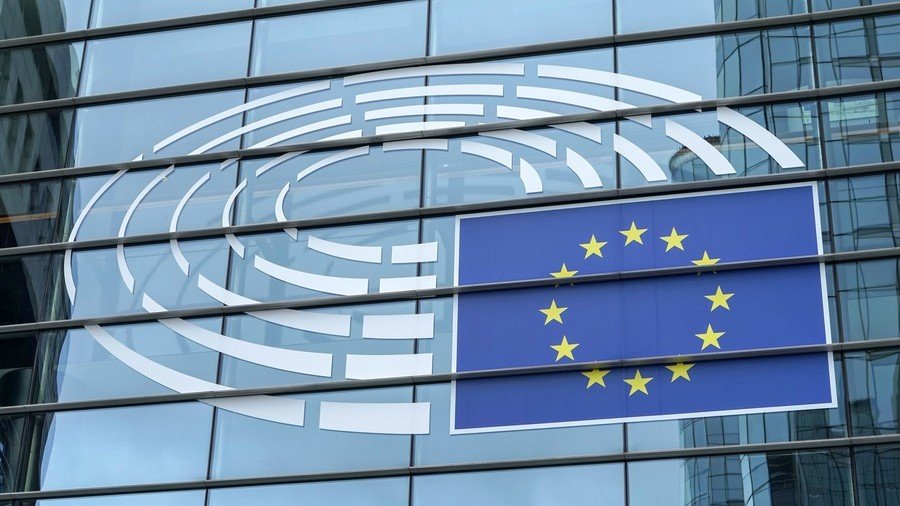EU Parliament greenlights move to trigger ‘nuclear option’ Article 7 against Hungary

The EU Parliament has voted in favor of triggering Article 7, which would allow punitive measures against Hungary over its migration policies and “media suppression.” Budapest fired back, calling the vote “petty revenge.”
Article 7 of the 2007 Treaty of Lisbon, often dubbed the ‘nuclear option,' is designed to be applied if there is “a clear risk of a serious breach” of EU values by one of the member states. Its full implementation can strip Budapest of voting rights in the European Council. During the session in Strasbourg on Wednesday, 448 MEPs voted in favor of invoking the article while 197 voted against.
An official probe launched by the European Parliament claimed earlier that the government of Prime Minister Viktor Orban poses “a systemic threat to democracy, the rule of law and fundamental rights” in the country. Hungarian officials were accused of clamping down on courts and the press, as well as mistreating migrants and ethnic minorities.
The EU parliament’s decision is, however, not the final step. By voting on Wednesday, MEPs passed the motion on to the European Council, which is next to decide whether Hungary has violated EU values and whether it should be stripped of its voting rights. But to do that the Council has to vote unanimously and hear Hungary’s arguments first.
Wednesday’s vote will lead to “an enormous backlash” within the EU, MEP David Coburn from the UK Independence Party (UKIP) told RT. He noted that Orban is a popular figure at home and abroad, and his position will garner support in Britain, France, and the Czech Republic among other places. On Tuesday, the European Parliament held a debate where Orban had to personally fend off numerous accusations hurled at him. Coburn, whose party voted in support of Hungary, argues that the MEPs didn’t treat Orban fairly.
“Quite frankly, it was a Stalinist show trial. It was appalling. Why should a leader of a sovereign nation have to endure insults like that?”
Former UKIP leader, Nigel Farage also weighed in. He said the decision demonstrated “the authoritarian grip of the EU,” which now “gets even tighter.”
European Parliament votes to remove Hungary’s voting rights, the authoritarian grip of the EU gets even tighter.
— Nigel Farage (@Nigel_Farage) September 12, 2018
Croatian MEP also slammed the move, saying that the bloc should stick to the path of dialogue to hammer out solutions for pressing issues.
I voted AGAINST the activation of #Article7 against #Hungary. We must seek solutions in dialogue, and in respect towards the fundamental #EU values, subsidiarity & proportionality principlea, as well respecting #Hungary internal political processes
— Marijana Petir (@marijana_petir) September 12, 2018
Orban for his part said before the vote that his country won’t bow to “blackmailing” by the EU and vowed to continue his policies. “Hungary will protect its borders, stop illegal migration and – if needed – we will stand up to you,” he warned.
He and his government have been long-time critics of any EU attempts to force Hungary into accepting migrants. Hungarian politicians have also blasted the bureaucracy in Brussels for overstepping its authority and trying to exert pressure on the Eastern European nation.
It’s the second time in the history of the European Union, when its parliament greenlights triggering the Article 7 proceeding against one of its 'misbehaving' members. Last December, Poland faced the same fate, since it allegedly violated the bloc’s “values” with its judiciary reform. Warsaw condemned the move as “politically motivated,” advocating its rights to exercise own sovereignty. Back then, Hungary was quick to rescue, promising to veto the decision of the European Council.
Think your friends would be interested? Share this story!















